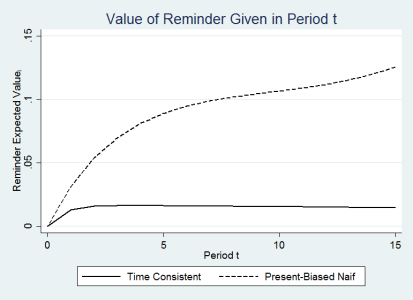I have two papers examining limited memory. Most recently:
On the Interaction of Memory and Procrastination: Implications for Reminders
Abstract: I examine the interaction between present-bias and limited memory. Individuals in the model must choose when and whether to complete a task, but may forget or procrastinate. Present-bias expands the effect of memory: it induces delay and limits take-up of reminders. Cheap reminder technology can bound the cost of limited memory for time-consistent individuals but not for present-biased individuals, who procrastinate on setting up reminders. Moreover, while improving memory increases welfare for time-consistent individuals, it may harm present-biased individuals because limited memory can function as a commitment device. Thus, present-biased individuals may be better off with reminders that are unanticipated. Finally, I show how to optimally time the delivery of reminders to present-biased individuals.
Forthcoming, Journal of the European Economic Association. Latest version here, with results on empirical estimation. Older version: NBER Working Paper 20381
This paper built on my previous work on memory, showing that people are overconfidence about the probability they will remember:
Forgetting We Forget: Overconfidence and Memory
Abstract: Do individuals have unbiased beliefs, or are they over- or underconfident? Overconfident individuals may fail to prepare optimally for the future, and economists who infer preferences from behavior under the assumption of unbiased beliefs will make mistaken inferences. This paper documents overconfidence in a new domain, prospective memory, using an experimental design that is more robust to potential confounds than previous research. Subjects chose between smaller automatic payments and larger payments they had to remember to claim at a six-month delay. In a large sample of college and MBA students at two different universities, subjects make choices that imply a forecast of a 76% claim rate, but only 53% of subjects actually claimed the payment.
Published 2011 in the Journal of the European Economic Association; Ungated working paper available at SSRN.
Press Coverage:
- “The Procrastination Doom Loop—and How to Break It.” The Atlantic, August 26 2014.
- “How to Procrastinate Better.” Bloomberg. September 4, 2014.
